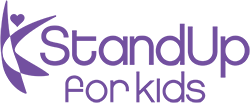Youth Outreach

Outreach representatives engage directly with at-risk and homeless youth nationwide. We prioritize developing trust and building relationships to connect them with vital resources. Volunteers distribute essential items like food, clothing, and hygiene products. We collaborate with community partners to support youth in achieving self-sufficiency.
Meeting and Engaging Youth
The single greatest need for homeless and street kids is continuous caring and real support.
A viable street outreach program is not solely concerned with finding homeless kids who are interested in staying in a shelter.
While identifying kids who may require shelter assistance, support must also be provided to those who, for one reason or another:
- have to live on the streets,
- aren’t ready for more of the establishment,
- are afraid to go to a shelter,
- have a police record and fear incarceration, or
- are afraid that they will be sent home.
Youth Outreach encompasses:
- Providing vital information regarding available resources to meet their needs, including housing, education, employment, medical, mental health and other support services
- Providing food, clothing and hygiene products
- Harm reduction counseling to address the risks associated with street life
Outreach Centers: Spaces to Thrive
Several of our locations across the United States have brick-and-mortar Outreach Centers spaces where youth can drop-in to rest, receive a hot meal, receive healthcare, meet with our volunteer counselors, and receive help with applications for housing, school, and/or citizenship. Some locations also accommodate shower and laundry facilities.
The intent and purpose of our Outreach Centers are to provide safe and protective environments for homeless and at-risk youth. An Outreach Center helps provide the support network of basic human needs and development through educational programs, one-on-one counseling, and an ongoing atmosphere of hope and concern.
Outreach Center highlights:
- A safe environment to rest
- A safe place to make meaningful relationships with caring adults
- Referral services for available programs throughout the community
- Meals and snacks
- Hygiene products
- Job referral service
- Telephone message and mail service
- Housing support (and assistance with furnishing an apartment)
- Identification services (birth certificates, Social Security cards, etc.)
- Structured life-skills and other wellness activities
